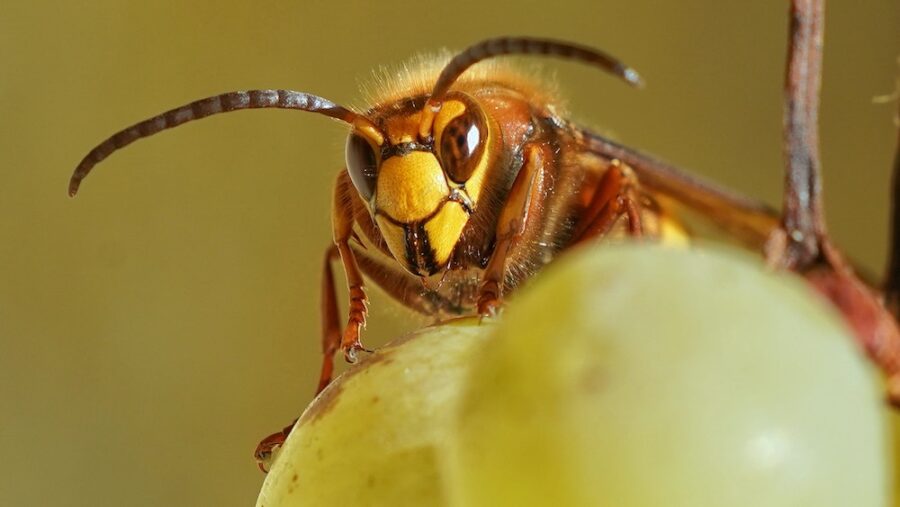Hornet Found In United States Annihilating Honey Bees

If you live in Georgia, then be on the lookout for mischievous hornets that can eat a colony of honeybees for breakfast. In an event that feels eerily reminiscent of the awful ‘Murder Hornets’ hysteria of 2020, there are now yellow-legged hornets roaming around Georgia, according to recent news from the Georgia Department of Agriculture.
While it’s exciting to see a new species in the area, it’s not so exciting when the species can annihilate innocent honeybees and destroy our local crops.
Yellow-legged hornets destroy crops and kill honeybees
In early August, a beekeeper in Savannah, Georgia spotted a yellow-legged hornet on his property, and followed the ‘see something, say something’ protocol. He reported the suspicious hornet to the Georgia Department of Agriculture (GDA), and it was later confirmed to be a native insect of Southeast Asia. We can only imagine how tired the little guy’s wings must have been from flying all that way.
The yellow-legged hornets are members of the social wasp species, and often create paper nests high up in the trees. Each nest can house around 6,000 of these aggressive hornets, so you won’t want to go hitting it with a stick.
While yellow-legged hornets are native to tropical and subtropical areas of Southeast Asia, they have also accidentally been introduced to parts of Europe, Japan, and South Korea—and now Georgia.
The recent discovery of the yellowlegged hornet is the first time its species has ever been spotted in the United States
The recent discovery of this hornet is the first time its species has ever been spotted in the United States. Rather than welcoming these small creatures to our country with open arms, Georgia authorities are eager to eradicate them since they can destroy honeybee colonies, which are crucial to our ecosystem.
Sweet, innocent honeybees help our ecosystem and economy by producing honey and beeswax, and by pollinating crops all over the country. There are over 90 different crops, including apples, cucumbers, and strawberries, that rely on pollinators. If the invasive yellow-legged hornets wipe out all of our honeybees, then we may no longer have these types of food and we could lose out on the $15 billion per year that is earned from selling the crops.
The aggressive yellow-legged hornets will likely not get along well with native honeybees since hornets often tend to attack bees. In fact, researchers have found that when giant hornets attack Asian honeybees, they will let out a scream to warn their fellow bees, much like Paul Revere shouting in the streets of Boston that the British are coming.
Local governments are working to eradicate the invasive species of yellow-legged hornets
The GDA is now working closely with the University of Georgia and USDA’s Animal & Plant Health Inspection Service to find and eradicate the invasive species of yellow-legged hornets before they kill all of our honeybees and take down our delicate ecosystem. Their strategy is first and foremost to rely on the people of Georgia to keep their eyes peeled for any of these insects that do not belong.
Once a yellow-legged hornet is spotted, the team will trap, track, and eradicate the yellow beast. These hornets can be dangerous, and they also look similar to other types of hornets, so residents should be cautious when identifying the insects.










